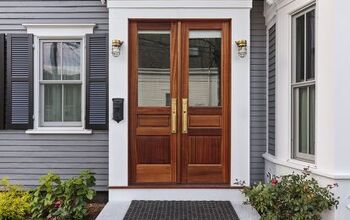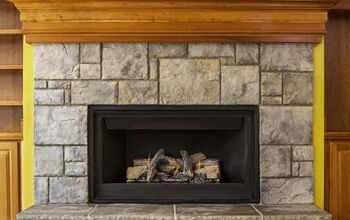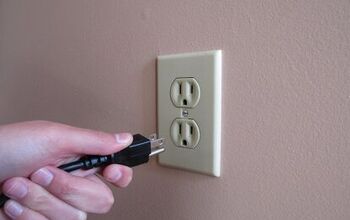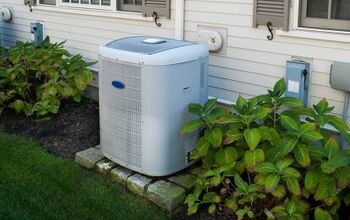I Can Hear My Upstairs Neighbor Talking! Now What?

You can’t expect upstairs neighbors to stay silent because you live downstairs. But who wants to hear everything the people in their apartment say? Overwhelming noises can make peaceful living a challenge. So, why can you hear upstairs neighbors talking? And what can you do about it?
Most likely, you can hear upstairs neighbors chatting because the walls are thin or they’re talking too loudly. Many apartment buildings use economical materials to cut costs during construction. And some neighbors speak at higher volumes than others. Plus, people on the top floor might not even know you exist. So, they won’t be quiet unless you introduce yourself.
Do You Need to Hire Movers?
Get free, zero-commitment quotes from pro contractors near you.

Why Can I Hear My Upstairs Neighbors Talking?
Sounds create vibrations that bounce off solid objects like walls, floors, and ceilings. So, you probably hear upstairs neighbors walking and talking because of that. Their voices can carry between floors and cause a stir of echoes in the halls. This means they don’t even have to be loud for you to hear their voices downstairs. And they might even be able to listen to you as well.
If your apartment features thin or outdated building materials, noise problems can worsen. Thicker materials can help stop some of the sounds from traveling between floors. But brittle floorboards or walls can do the opposite. So, don’t assume your upstairs neighbors are loud on purpose. It could be that their voices are echoing through the building.
Is Hearing Neighbors Upstairs Normal?
Expect to hear sounds from the neighbors when you live in a multi-story apartment. So many people can’t stay completely silent all day and night. However, neighbors should respect each other and try to keep quiet. And that’s especially crucial during early morning or late night hours.
Apartment living can be tricky. You must respect the neighbors while also trying to live your best life. And it doesn’t help that your homes sit on top of each other. At some point, you and the neighbors must agree with what is and isn’t too loud. So, most landlords write a noise ordinance into the lease. Ask for a copy to find out what it says.
Meanwhile, people don’t always know when someone new moves in downstairs. So, they continue to live as if nobody is beneath them. Try introducing yourself first to reduce the noise and live comfortably with upstairs neighbors. Friendly neighbors are usually more respected than neighbors who constantly cause drama.
Can My Upstairs Neighbors Hear Me?
You’re not the only one who can hear neighbors talking. The people upstairs can also listen to conversations from downstairs. And the people downstairs can listen to chatting from the floors above. So, try to speak softly if you’re worried about the neighbors snooping.
Since other people can listen to your conversations, never talk about crucial topics, private matters, or finances too loudly. Unscrupulous neighbors can steal information if you’re not careful. And it can be difficult to prove identity theft under those circumstances.
Are Landlords Responsible for Noisy Neighbors?
You can hear neighbors talking all the time. And they aren’t just chatting; they’re yelling. Is it your landlord’s responsibility to deal with the noisy tenant, or is it yours? The answer depends on several factors, including what’s written in your rental agreement. Usually, property managers will handle boisterous tenants with warnings, fines, penalties, or eviction.
NOTE: Most landlords can’t or won’t kick someone out of their apartment for noise after the first or second offense. Many properties operate on a three-strikes basis.
What Is Considered Excessive Noise in an Apartment?
A multi-unit residential property houses several families in one building. Meanwhile, each apartment contains TVs, radios, and people who make noises. Those sounds then travel through the structure, causing a low-frequency hum around the building. So, most apartments aren’t quiet places to live. But typical noises aren’t considered excessive in most cases.
So, what is excessive noise in an apartment? Landlords usually disallow anything above 45 decibels. That means you can’t yell, party, or play loud music. However, crying babies are allowed. But some residences require lower decibels depending on the tenants. So, be sure to check your lease for more specific information.
How Do I Stop the Sound From Upstairs Neighbors?
Are you tired of hearing your upstairs neighbors talking? Worried about them listening in on your private conversations? Here are ways to reduce noise from the floors above and block sounds coming from your apartment:
- Add Insulation: If your landlord says it’s okay, install extra insulating materials into the ceiling.
- Use Soundproof Sealant: Ask your landlord to apply noise-canceling sealant between the floors to muffle noises.
- Talk to Your Neighbors: Let them know you can hear their conversations. Then, see if they can talk more quietly.
- Consult the Landlord: Tell the property manager about your problems to find out what you can do about them.
TIP: Never confront your neighbors or landlord in anger. You could say or do things you’ll regret. Or you could get in trouble for harassment.
Can I Call the Cops About Noise?
You can call the cops if your upstairs or downstairs neighbors get too loud. Plus, you don’t have to wait for regular business hours to file a complaint. Most landlords provide a 24/7 helpline for tenants. And the police are ready to help you handle disputes at all hours. So, don’t start fights with other people because of a noise problem. Seek assistance from law enforcement instead. Your landlord can’t evict you for calling the police unless it becomes a nuisance.
NOTE: Never call 911 for a noise disturbance unless you think someone is hurt.
How Do I Get Used to Sound from Upstairs?
You can only manage the noise from an upstairs apartment. You cannot stop it. So, how do you live with the sound of your neighbor’s voice? Here are some tips:
- Buy a White Noise Machine. That way, the sound will help cancel some of the ruckuses from upstairs.
- Install More Furniture. Then, the noises won’t echo through your apartment as quickly.
- Put Up Sound Reducing Curtains. You can muffle noises while also blocking nosey onlookers.
- Close Your Air Returns. If you’re not using them to heat or cool a room, shut the vents to stop the noise.
If all else fails, see if you can move into another apartment with quieter tenants upstairs. You might have to sign a new lease to get approved. But you can usually relocate quickly.
Related Questions
Do Downstairs or Upstairs Neighbors Hear More?
Because of how sound travels, the people upstairs are less likely to hear the people downstairs. However, noises can still travel between floors. And thin building materials can make voices echo down the halls. So, speak quietly regardless of where you live. And try to have respect for your neighbor’s privacy.
Is It Better to Live Upstairs or Downstairs?
Most people prefer downstairs apartments because they’re more convenient. You can carry groceries in and out or move furniture around without disturbing others. However, living in a downstairs apartment isn’t all good. That’s because you can hear the upstairs neighbors walk and talk.Living in an upstairs apartment means you have to lug groceries up a staircase. You also have to speak more quietly and be careful when moving objects in your house. So, weigh the pros and cons before signing your lease. And ask the landlord for suggestions based on the behavior of tenants on each floor.
How Do I Tell My Neighbors They’re Too Loud?
You can work out noise problems with upstairs neighbors if you’re patient and polite. Most tenants don’t know they’re too loud unless you tell them. Plus, some people might not even know you live downstairs until you introduce yourself. So, try not to confront neighbors with anger or hostility.Knock on their door during peak hours instead. Or write them a friendly letter addressing your concerns. You can offer housewarming gifts or give them suggestions as well. But call the landlord for help, or contact the police if there’s a dispute you can’t handle.
What Is Reasonable Noise from a Neighbor?
Life isn’t silent. So, your neighbors won’t be either. Expect a reasonable amount of noise from the apartments above and below you. But don’t accept loud sounds after 11 PM or before 7 AM. Usually, cities don’t allow people to cause a stir during those hours. And many landlords write provisions covering noise ordinances in your rental agreement. So, check your documents for more specific details.
Do You Need to Hire Movers?
Get free, zero-commitment quotes from pro contractors near you.

Find Peace and Enjoy a Quiet Home
Live in peace with your neighbors, even if you can hear them talking. Find out how to reduce the sounds coming from upstairs. And confront noisy neighbors to enjoy a quiet home. But first, determine why your apartment is so loud. Then, talk to your landlord for more information.
Related Guides

Tiffany Nichols specializes in aesthetics, design, marketing, and manufacturing. She's a copywriter and editor for several home renovation companies in the U.S. and works alongside some of the biggest names in the industry. Her hobbies include architecture, art, mental health, and fashion.
More by Tiffany Nichols













![10 Best Electric Pressure Washers – [2022 Reviews & Guide]](https://cdn-fastly.upgradedhome.com/media/2023/07/31/9070600/10-best-electric-pressure-washers-2022-reviews-guide.jpg?size=350x220)













